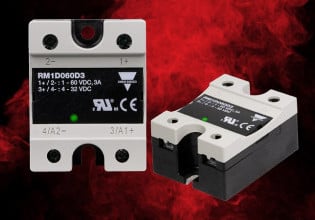A
I recently finished my MS in electrical engineering focusing in Systems and Controls. Now, I am seeking oppertunity in the industry as a controls engineer. In every controls engineer requirement, I have seen that they ask for at least 2 years of PLC programming experience. Unfortunately, I went to a university which is focused more on theoretical controls and even the professors who has been teaching controls for past 30 years in here does not know what PLC's are. So, now I am in a deep trouble. I want to work in the field of automation and controls. I don’t care if it’s PLC programming, DCS, HMI, Motion Control, I just want to work on one of these fields. I have a strong foundation in Programming in C++, LabView, Matlab, Simulink and with these experience and expertise, I firmly believe that I can learn all the required tools in a reasonable amount of time and be a valuable asset to any organization. So, I was wondering if you guys can give me some tips regarding how I can land into a controls engineer job.
Actually, I tried to learn PLC programming by myself. I got a book on PLC programming from library. I read upto flipflops. It pretty much looked like digital logic. I downloaded RSLogix 5000 demo software from Rockwell Automation website. Tried to write some programs. Read some help files. Finally, got a feeling that if got an assignment, I can do it. then quit it. Similarly, I downloaded CitectScada software and learnt it also. Then I put it all in my resume. " Sound understanding of PLC programming, RSLogix 5000, Citect Scada". I got some consultant phone calls but they were more interested in how many years of actual experience I have with these tools in industry. I was a naive. I used to say that I don't have any hands on experience; learnt it all by myself by reading the help files. They never called me second time.
After going through all these, I am seeking some advice from you guys. PLEASE help me. What do I need to do to get an entry level position as an controls engineer??????
Actually, I tried to learn PLC programming by myself. I got a book on PLC programming from library. I read upto flipflops. It pretty much looked like digital logic. I downloaded RSLogix 5000 demo software from Rockwell Automation website. Tried to write some programs. Read some help files. Finally, got a feeling that if got an assignment, I can do it. then quit it. Similarly, I downloaded CitectScada software and learnt it also. Then I put it all in my resume. " Sound understanding of PLC programming, RSLogix 5000, Citect Scada". I got some consultant phone calls but they were more interested in how many years of actual experience I have with these tools in industry. I was a naive. I used to say that I don't have any hands on experience; learnt it all by myself by reading the help files. They never called me second time.
After going through all these, I am seeking some advice from you guys. PLEASE help me. What do I need to do to get an entry level position as an controls engineer??????






